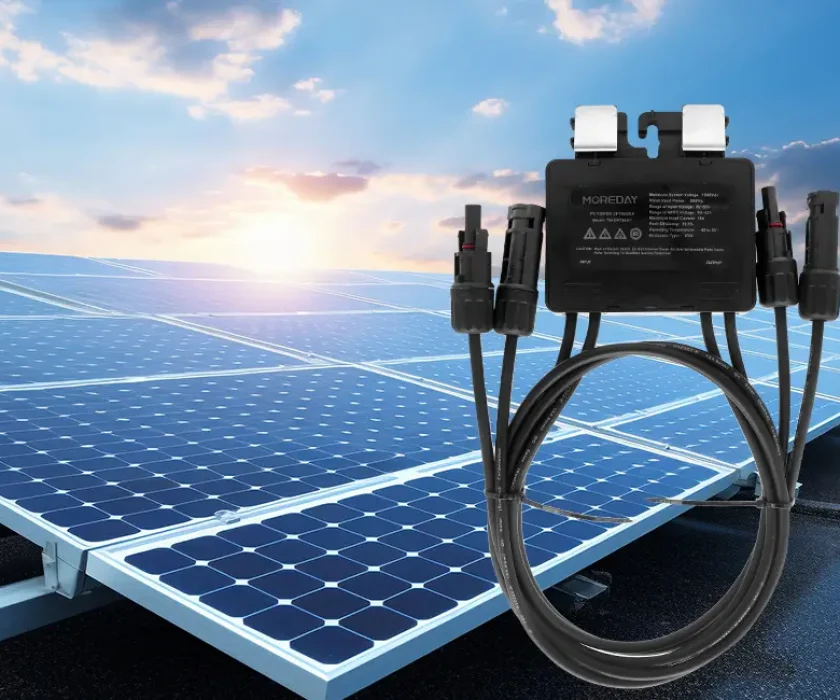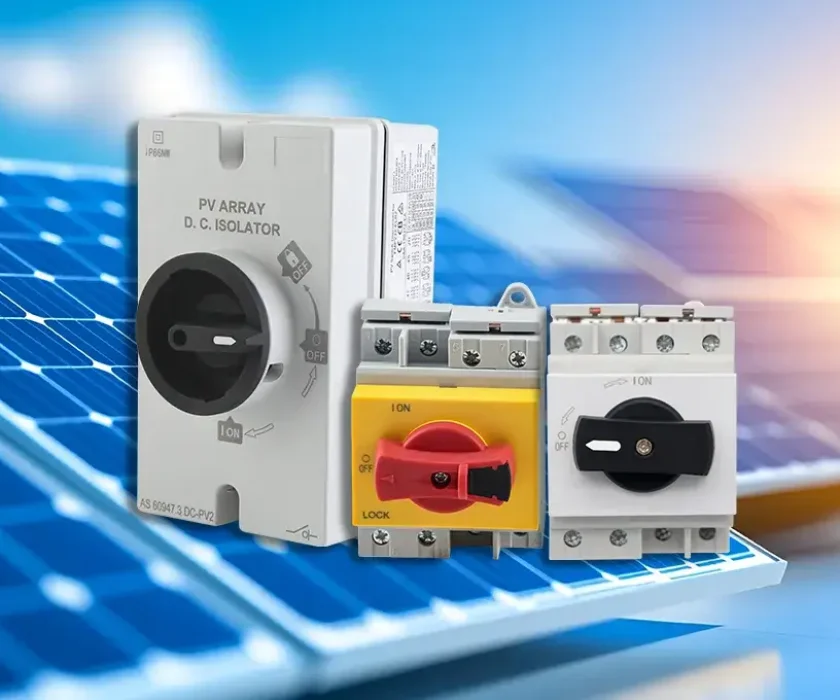Introduction
I
In the age of renewable energy, solar power is leading the charge for a cleaner and greener future. With solar panels popping up on rooftops all over the world, it’s easy to see that we’re moving in the right direction. But as with any technology, there’s more to the story, and in this case, it’s the hybrid inverter. This game-changing device is a key part of making solar energy systems more efficient and adaptable. So, what is a hybrid inverter, and why should you care? Let’s dive in and find out!
What is a Hybrid Inverter?
At its core, a hybrid inverter is a smart device that allows solar panels, batteries, and the traditional electric grid to work together. Think of it as the brain of your solar energy system, orchestrating everything in harmony. It takes the solar energy generated by your panels and either uses it to power your home directly, stores it in a battery for later use, or sends it back to the grid. Pretty neat, right?
Hybrid inverters are becoming increasingly popular because they give homeowners and businesses more flexibility in how they use solar energy. Whether it’s sunny or cloudy, or whether the grid is up or down, a hybrid inverter ensures you’re never left in the dark. Literally!
How Do Hybrid Inverters Work?
You’re probably wondering, “How does all this work?” Let’s break it down.
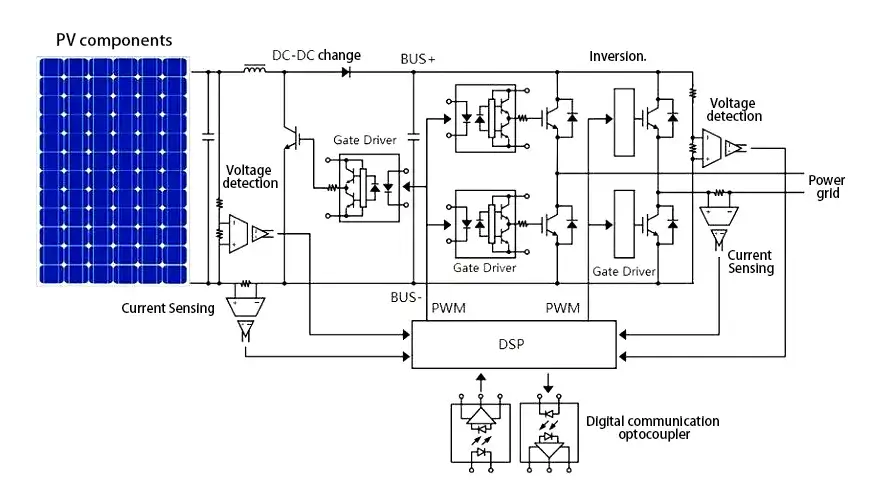

Solar panels generate DC power (direct current) when they soak up sunlight. The problem? Most homes and appliances run on AC power (alternating current). That’s where the inverter comes in. A hybrid inverter converts the DC power into usable AC power for your home.
But here’s where it gets interesting—hybrid inverters don’t just convert power. They also decide where that power goes. If you’re producing more solar energy than you need, the hybrid inverter can store that excess power in a battery for use later, like during the evening when the sun isn’t shining. And if your battery is full, it can send the extra power back to the grid, which could even earn you some money through energy buy-back programs. It’s like having a super-efficient traffic cop directing the flow of energy in all the right directions.
Key Features of Hybrid Inverters
Now that you know what a hybrid inverter is and how it works, let’s talk about some of its best features.
Energy Flexibility
Hybrid inverters give you options. With a traditional solar setup, you’d have to rely on the grid when the sun goes down or when your energy demand exceeds your solar production. But with a hybrid inverter, you can store extra energy in a battery and use it when you need it. This means less dependence on the grid and more control over your energy usage.
Energy Storage
One of the standout features of hybrid inverters is their ability to store energy. Solar energy doesn’t always play nice with your daily schedule. It produces the most power during the day when you might not need it. A hybrid inverter lets you save that power for later, so you can use solar energy even when the sun isn’t shining.
Grid Sell-back
Imagine producing more solar power than you can use or store. What happens then? With a hybrid inverter, you can send that extra power back to the grid and get paid for it! Some energy providers offer buy-back programs that allow you to sell your surplus electricity, putting money back into your pocket while you help power your community.
Backup Power
Power outages happen. But with a hybrid inverter, you can keep the lights on even when the grid goes down. Hybrid inverters allow you to switch to battery power automatically, ensuring that essential appliances keep running. This feature can be a lifesaver in areas prone to blackouts or during natural disasters.
Comparison: Hybrid Inverters vs. Traditional Inverters
You might be wondering, “What’s the difference between a hybrid inverter and a regular one?”
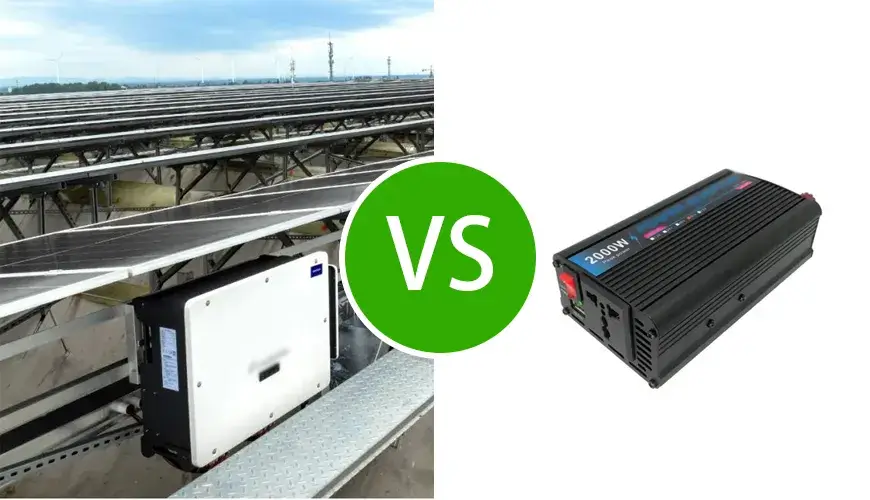

A traditional inverter only converts the DC power from your solar panels into AC power for immediate use. If you generate more energy than you need, it’s sent back to the grid, and if you’re not producing enough, you have to pull from the grid.
On the other hand, a hybrid inverter does everything a traditional inverter does—and more. It can also store excess energy in a battery for later use and pull energy from the grid or the battery as needed. This added flexibility makes hybrid inverters a much more efficient and versatile option, especially for those who want to get the most out of their solar system.
Why Choose a Hybrid Inverter?
There are several reasons why hybrid inverters are becoming the go-to solution for solar energy systems. Let’s explore some of the top benefits.
Cost Savings
By maximizing your use of solar energy and reducing your reliance on the grid, hybrid inverters can significantly lower your energy bills. And if you’re able to sell excess energy back to the grid, you can further offset the cost of your system. Over time, these savings can add up to a substantial return on investment.
Environmental Impact
Reducing your dependence on fossil fuels is one of the best things you can do for the planet. By using more of your own solar energy and less grid power, hybrid inverters help lower your carbon footprint. It’s a win for both you and the environment.
Future-Proofing Your Energy Needs
As the energy landscape continues to evolve, having a hybrid inverter in place ensures that your system is ready to take advantage of new technologies and opportunities. Whether it’s integrating electric vehicle (EV) charging or connecting to advanced energy management platforms, hybrid inverters provide the flexibility to adapt to the future.
Why Choose a Hybrid Inverter?
It’s a good question. And the short answer is yes, but it’s not recommended.
Hybrid inverters are designed to work with batteries, but they can still function without one. In this case, any excess energy your solar system produces would be sent straight to the grid rather than stored. While this can still help reduce your energy bills, you won’t have the backup power capability or the ability to store energy for later use, which is one of the biggest advantages of a hybrid system.
If you’re investing in a hybrid inverter, adding a battery to the mix is definitely worth considering. It’s what gives the system its full potential.
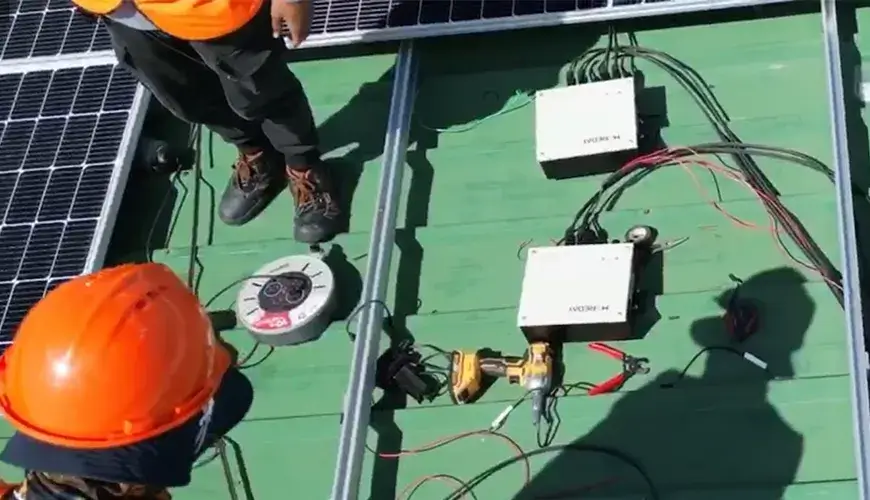

How Much Do Hybrid Inverters Cost?
Hybrid inverters tend to be a bit more expensive than traditional inverters. But considering the extra features and benefits they offer, many homeowners and businesses find them to be a better long-term investment.
The cost of a hybrid inverter can vary based on the size and complexity of your solar system. Typically, they account for about 6-10% of the total system cost. For a mid-sized residential solar installation, this could range anywhere from $1,500 to $2,500. While the upfront cost is higher, the potential savings from energy storage, grid sell-back, and reduced reliance on the grid can quickly offset the initial expense.
Conclusion
Hybrid inverters are revolutionizing the way we use solar power. They offer flexibility, efficiency, and the ability to store energy for when you need it most. By combining the benefits of traditional inverters with cutting-edge technology like battery storage and grid sell-back, hybrid inverters are the next step in making solar energy more accessible and reliable.
Whether you’re looking to cut down on your energy bills, reduce your environmental impact, or just have peace of mind knowing you’ve got backup power during outages, hybrid inverters are an excellent choice. As solar technology continues to advance, hybrid inverters are likely to become even more essential in the move toward a greener, more sustainable future.
FAQ`s.
Q1: Can I install a hybrid inverter with my existing solar panels?
A1:Yes, most hybrid inverters are compatible with existing solar setups. However, it’s important to check with your installer to make sure your system can accommodate the new inverter.
Q2: How long do hybrid inverters last?
A2: A high-quality hybrid inverter can last anywhere from 10 to 15 years, depending on usage and environmental conditions.
Q3: Do I need to install a battery with my hybrid inverter?
A3: While you don’t need a battery to use a hybrid inverter, having one greatly enhances the system's efficiency and gives you access to backup power and energy storage.
Q4: How much energy can I store with a hybrid inverter?
A4: The amount of energy you can store depends on the size of your battery. Most hybrid inverters can handle a range of battery sizes, so you can choose one that fits your energy needs.
Q5: Are hybrid inverters suitable for commercial use?
A5: Absolutely. Hybrid inverters are used in both residential and commercial solar systems, offering the same benefits of energy flexibility, storage, and efficiency on a larger scale.
Derek Ke
Hi, I’m Derek Ke, founder of Moreday.com, an expert in solar-protected electrical products and electric vehicle charging.
Over the past 15 years, we have helped nearly 500 customers (such as farms, residential, industrial, and commercial) in 60 countries solve new energy and green power problems. We aim to share more knowledge about solar power generation and new energy with everyone so that green electricity can enter thousands of households.







